Joint MTA/AMI Coaching weekend
Create long term improvements and lifelong learning by integrating coaching into your instructing and leading
10-11th November 2018 @ The Hollowford Centre
MTA and AMI have teamed up to bring you a weekend of “all things coaching” focusing on the processes of coaching and helping you to understand coaching concepts and when to use them. Know when and how to apply coaching skills regardless of activity or level and integrate them when leading groups or instructing clients.
This event will give you an abundance of tools, models and ideas and give you the confidence to apply them in all aspects of your work and life. Learn new and develop your existing coaching skills to be more effective when delivering your activities. Used well, these skills will enhance your students and clients learning experience and enable them to get the most out of their sessions, build good relationships and empower them to achieve their aspirations and goals.
All workshops are half day sessions maximising the opportunity for you to attend a variety of subjects designed to grow and expand your coaching tool box.
Once you have booked on this event please make sure that you choose one morning and one afternoon workshop per day that you have booked.
PRICING OPTIONS
Come along for the entire weekend for
£170 including two nights B&B at the Hollowford Centre, or book a non residential weekend package for just
£120. Alternatively you can just come along to
one day for £65.
Single night accommodation and breakfast options are also available and campervan parking is also available for an additional fee. All prices include lunch.
Workshop bookings close on Monday 5th November.

WORKSHOP PROGRAMME
All of the workshops are half day sessions and run once in the morning and again in the afternoon.
SATURDAY - 10th November...
Questioning Skills
How good are your questioning skills? What would make them even better?
Open questions are the beating heart of coaching. They are what make the difference between coaching and instructing, between mere compliance with an instruction and commitment to take action.
Coaching is not simply a matter of asking any open question though. Coaching is a conversation that has a particular purpose, shape and structure
On this workshop you will:
- Learn about Adult to Adult conversations and how they create commitment to action.
- Explore different types of open questions.
- Practise your coaching skills.
- Leave with some helpful coaching tools to enhance your coaching practice
About the workshop provider:
 Mark Sykes
Mark Sykes
Mark is one of the directors and founders of Beehive, an Organisational Development consultancy specialising in behaviour change; building the principles of sustainability into organisational learning through the application of a coaching mindset, skills and practice. Beehive is working very closely with Bangor University to develop a unique trust-based safety model. Working across many sectors, Beehive has gained unique insights into how coaching add value in a wide variety of settings.
Mark graduated with a B.Ed in Outdoor Education from Bangor and started his career instructing and coaching in the outdoor sector. He loves to share his passion for coaching and is delighted to be sharing his knowledge at the conference this year.
Observation
This workshop will look at the fundamental coaching skill of observation. It will examine the role and ways in which observation can be used in the learning cycle of performance development. We will look at observational models and levels, selective attention, and the observational behaviours of effective coaches as defined by recent academic research. The use of technology and its role in supporting analysis and feedback will also be explored.
About the workshop provider:
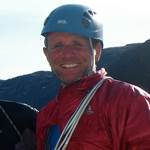 Dean 'Sid' Sinfield
Dean 'Sid' Sinfield
Sid has worked in the outdoors for 29 years. During this time he’s coached, instructed, taught and lead in a wide range of settings. Currently, he is a senior instructor at Plas y Brenin where he leads on Teaching and Learning across the centre’s provision. He holds the MIA, Winter ML and IML awards as well as numerous British Canoeing Coaching awards. He has an MSc in Performance Coaching and is currently studying for a D.Prof in Elite Performance. Whilst enjoying academic pursuits his primary interest is in bring this knowledge to improve practical applications in the mountains, on the rocks and on the water.
Motivation, self determination theory and coaching
Having an intrinsic motivation within sport is considered to provide the best outcomes for development, well being, learning and lifelong participation. Using self determination theory (SDT; Deci & Ryan, 2008) as a framework for sports coaching provides a way to foster intrinsic motivation through coaching practices which facilitate autonomy, competence and relatedness.
This workshop will take you through the theory, help you apply it to practical tasks, and then provide guided opportunities to develop your own lesson plans using SDT as a framework, with a mixture of teaching, reflection, small group exercises, and (the dreaded!) role play.
Reference: Deci, E. L., & Ryan, R. M. (2008). Self-determination theory: A macrotheory of human motivation, development and health. Canadian Psychology, 49, 182-185
About the workshop provider:
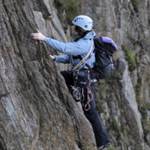 Dr Rebecca Williams BSc DClinPsy CPsychol MCMI
Dr Rebecca Williams BSc DClinPsy CPsychol MCMI; Consultant Clinical Psychologist; Registered as a Practitioner Psychologist with HCPC; Chartered with the BPS & CMI
Rebecca has worked as a Consultant Clinical Psychologist and within the NHS for the last 17 years part time, and has been working as a Psychological Performance Coach for the last 10 years. She works with climbers of all ages from grassroots to elite level, and specialises in the management of anxiety for climbers and the development of healthy coping skills.
Rebecca runs a number of workshops on the psychology of climbing and mountaineering, including Mountain Training’s Performance Coach ‘Coaching the Mind’ module, the Diploma in Mountain Medicine, NICAS, the BPS as well as climbing clubs, as well as recently presenting the keynote speech at the International Rock Climbing Research Association congress in Chamonix. She is a member of the BMC’s Equality & Diversity Mental Health working group. Within the NHS, she manages and leads the children’s Disability Team for North Wales, specialising in behaviour change. She’s mainly a boulderer these days!
Visit
Smart Climbing – psychological performance coaching for climbers.
Feedback
Feedback is an essential aspect of coaching and deliberate purposeful practice. As such it is a key component of improving performance. The type and style of feedback, how it’s given, the amount and timing of when are all crucially important in the effectiveness of the feedback process. In this workshop we will be exploring feedback. Looking to develop our understanding of how we can become more effective in its use and as a result be a more effective coach.
About the workshop provider:
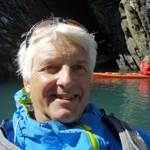 Mike Raine
Mike Raine
Senior Instructor, Plas y Brenin, National Mountain Centre.
Mike is a former senior teacher who held responsibilities for staff training, teaching and learning. At Plas y Brenin he leads on Instructor training and assessment, he oversees the provision of Mountain Training Courses and regularly works on a wide range of courses as well as contributing to the management of the Centre. You may have come across him as the author of the ever popular handbook for walkers and climbers ‘Nature of Snowdonia’. Mike holds the Mountaineering Instructor Certificate and is an International Mountain Leader.
Self-talk and Visualisation
How do self-talk and visualisation affect our performance? Can they be used as practical coaching tools? We’ll spend the session exploring the theory and practice of mental imagery and the inner monologue, looking at the different roles they play in our performance both consciously and beneath the surface subconsciously.
Discover how self-talk and visualisation can help manage focus, emotions and performance in challenging situations. Learn to recognise opportunities to practice and coach self-talk and visualisation skills with your students and clients.
About the workshop provider:
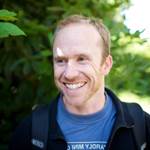 John Kettle
John Kettle
John is an independent climbing coach and mountaineering instructor in Cumbria, with over 20 years’ experience delivering instruction and coaching.
He specialises in climbing coaching, and he is a Course Provider of the new Mountain Training Coaching schemes, and a CPD provider for the associations: BMG, MTA, AMI and BAIML.
SUNDAY - 11th November...
The power of demonstrations & effective structures of practise
The workshop will look at the 'power of demonstration', and its importance when introducing new techniques to learners. Effectiveness of demonstrations, methods of demonstration, learner positioning and how to avoid 'bad' images being sent to the learners receptors. We will then look at some simple clear strategies for structuring practice.
About the workshop provider:
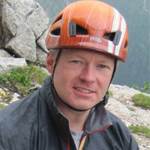 Joby Davis
Joby Davis
Joby is an experienced and current MIC holder, and is a leading climbing wall expert. As well as a technical climbing expert, Joby spends a large proportion of his time coaching climbers, paddlers, mountaineers and coaches! A leading provider of the Mountain Training Coaching scheme, and ex-Premier Slalom Kayak paddler his experiences of coaching at both ends the spectrum are wide and diverse.
Listening
Are you a good listener? How to make sure you are not missing the cues and vital information our clients are sharing. Listening is one of the most important skills you can have. How well you listen has a major impact on your job effectiveness, and on the quality of your relationships with others.
This workshop will explore different types of listening, when and how to use them most effectively. It will cover a variety of practical exercises to allow you to hone and enhance your own listening skills to build better relationships, understand your clients and groups needs and aspirations and get more success from the sessions you offer.
About the workshop provider:
 Dean 'Sid' Sinfield
Dean 'Sid' Sinfield
Sid has worked in the outdoors for 29 years. During this time he’s coached, instructed, taught and lead in a wide range of settings. Currently, he is a senior instructor at Plas y Brenin where he leads on Teaching and Learning across the centre’s provision. He holds the MIA, Winter ML and IML awards as well as numerous British Canoeing Coaching awards. He has an MSc in Performance Coaching and is currently studying for a D.Prof in Elite Performance. Whilst enjoying academic pursuits his primary interest is in bring this knowledge to improve practical applications in the mountains, on the rocks and on the water.
Self reflection
How do we and our clients reflect on our performance and experience? Are we getting the best learning from our reflections? Would our reflective practice benefit from more structure? We’ll explore all these questions and more as we uncover the principles of effective self-reflection. Understand the potential benefits of planned and spontaneous reflections, and how they contribute to improved learning. Discover how to design sessions to make reflections feel easier and more productive, and how to find space for your clients to pause and reflect in a congested coaching environment.
About the workshop provider:
 John Kettle
John Kettle
John is an independent climbing coach and mountaineering instructor in Cumbria, with over 20 years’ experience delivering instruction and coaching.
He specialises in climbing coaching, and he is a Course Provider of the new Mountain Training Coaching schemes, and a CPD provider for the associations: BMG, MTA, AMI and BAIML.
Trust based coaching
For coaching to be most effective participants must have trust in the coach and in order for that to happen coaches themselves must be perceived as being trustworthy.
In this workshop participants will be introduced to the b.SAFE D2iT trust model developed in partnership with Bangor University.
Mark Sykes will take you through the elements of the model with a variety of presentations, small group discussions, practical activities and actions to take away to enhance the levels of trust you can actively create as a coach.
About the workshop provider:
 Mark Sykes
Mark Sykes
Mark is one of the directors and founders of Beehive, an Organisational Development consultancy specialising in behaviour change; building the principles of sustainability into organisational learning through the application of a coaching mindset, skills and practice. Beehive is working very closely with Bangor University to develop a unique trust-based safety model. Working across many sectors, Beehive has gained unique insights into how coaching add value in a wide variety of settings.
Mark graduated with a B.Ed in Outdoor Education from Bangor and started his career instructing and coaching in the outdoor sector. He loves to share his passion for coaching and is delighted to be sharing his knowledge at the conference this year.
The optimal learning environment
Setting a positive learning environment so that learners can flourish is half the battle in teaching and coaching. This workshop will look at basic psychological human needs, self-determination theory, transformational leadership, and providing appropriate challenge and support to illustrate how learners can be motivated to get the best out of themselves. We will also look at some key practical tips to managing common scenarios that hinder learning.
About the workshop provider:
 Mike Raine
Mike Raine
Senior Instructor, Plas y Brenin, National Mountain Centre.
Mike is a former senior teacher who held responsibilities for staff training, teaching and learning. At Plas y Brenin he leads on Instructor training and assessment, he oversees the provision of Mountain Training Courses and regularly works on a wide range of courses as well as contributing to the management of the Centre. You may have come across him as the author of the ever popular handbook for walkers and climbers ‘Nature of Snowdonia’. Mike holds the Mountaineering Instructor Certificate and is an International Mountain Leader.